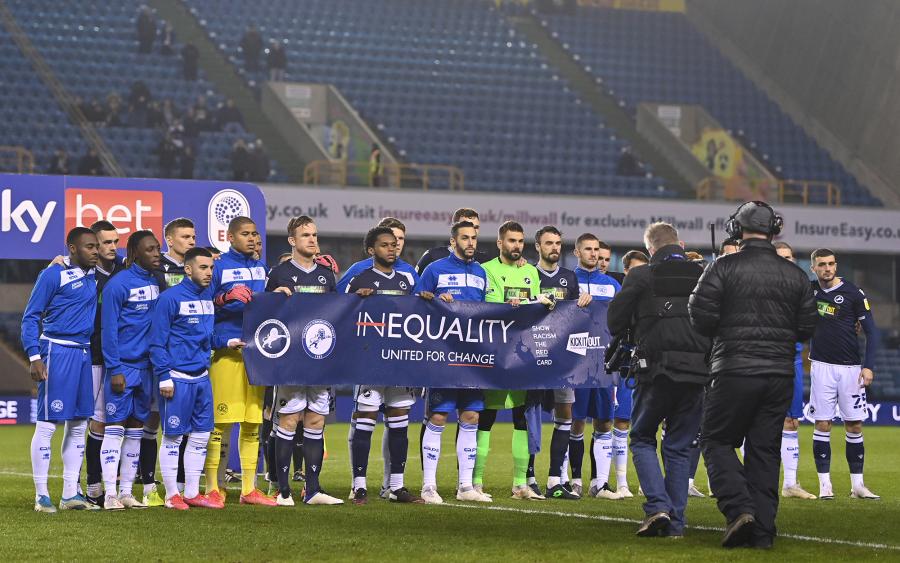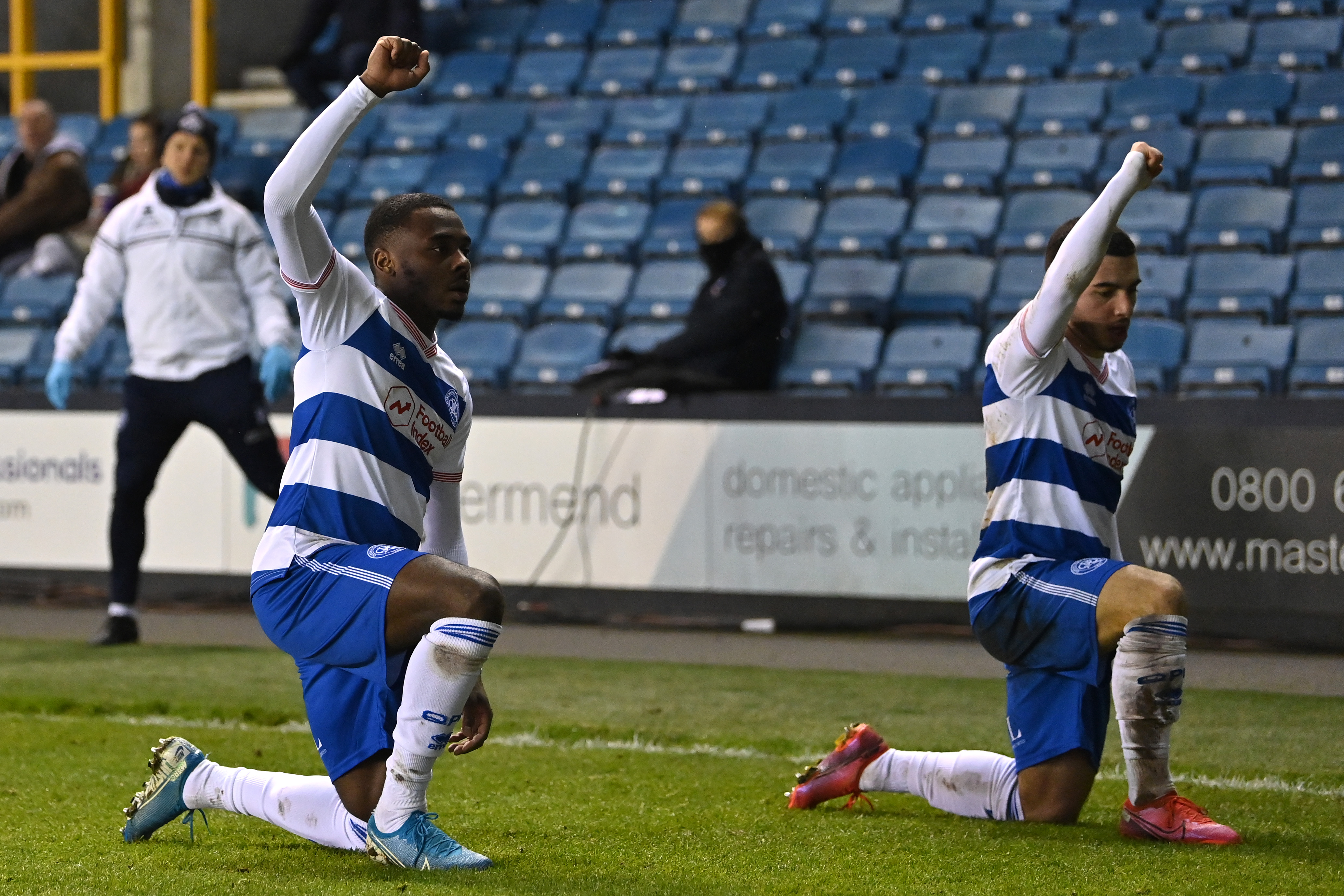QPR away matches at Millwall are rarely routine. London derbies always have an extra edge. At Millwall, you have one of the fiercest and most partisan crowds in the country and the proud and not-so-proud history of the club’s fans. A visit to the Den can be an intimidating prospect for players and fans alike.
But last Tuesday night’s Millwall-QPR game attracted worldwide attention for reasons way beyond the normal expectations of a keen midweek game. Three days earlier Derby’s game at Millwall had been marred by the hostile reaction of sections of the crowd to the visiting players taking part in the now familiar ritual of taking the knee. There were boos, jeers, catcalls and shouts of ‘stand up’.
Taking the knee, an anti-racist gesture borrowed from American football and the Black Lives matter movement, has become a familiar sight at most games this season. The jeering of the Millwall supporters drew wide condemnation and revived unhappy memories of past links with fascist far-right groups – a history the club has worked hard to eradicate ever since.
At the start of this season all the QPR players took the knee at every game. But then the club decided it should be a matter of individual choice. Some players took the knee, some didn’t. At times it has looked uncomfortably untidy. The club has a very good track record of promoting racial equality in the game, far better than most. Its Director of Football, Les Ferdinand is the first and so far only black person to hold such a senior role in English professional football. The club boasts several black coaches. Ferdinand proudly says QPR are "the most diverse club in the country"
The club has justified its equivocal position on taking the knee saying the protest had sent a "powerful message" at the start, but a lack of meaningful moves on racial equality in football since has led to it becoming another empty gesture. As Ferdinand puts it: : “[we've] been doing it for 30 years. You know, let's wear another badge, let's wear another T-shirt, let's have another campaign, and nothing is done.”

But by Tuesday night the arguments had changed. After a staged photo op by both teams behind a unity banner, all the QPR players felt it important to take knee and did so. This time the Millwall fans applauded, chastened perhaps by the hostile reaction to their weekend jeers.
The headlines the next day talked about football having redeemed itself. But it hasn’t. In the long run, Les Ferdinand is right. Until it is as normal to see a black face in the manager’s dug- out as on the pitch and until there are black faces in club boardrooms, we will know football still has a problem, knee or no knee.
Phil Harding is a journalist and writer. He is a season ticket holder at QPR and has supported the team since the early 70s.
The views expressed in this blog are those of the author and unless specifically stated are not necessarily those of Hammersmith & Fulham Council.
Want to read more news stories like this? Subscribe to our weekly e-news bulletin.

